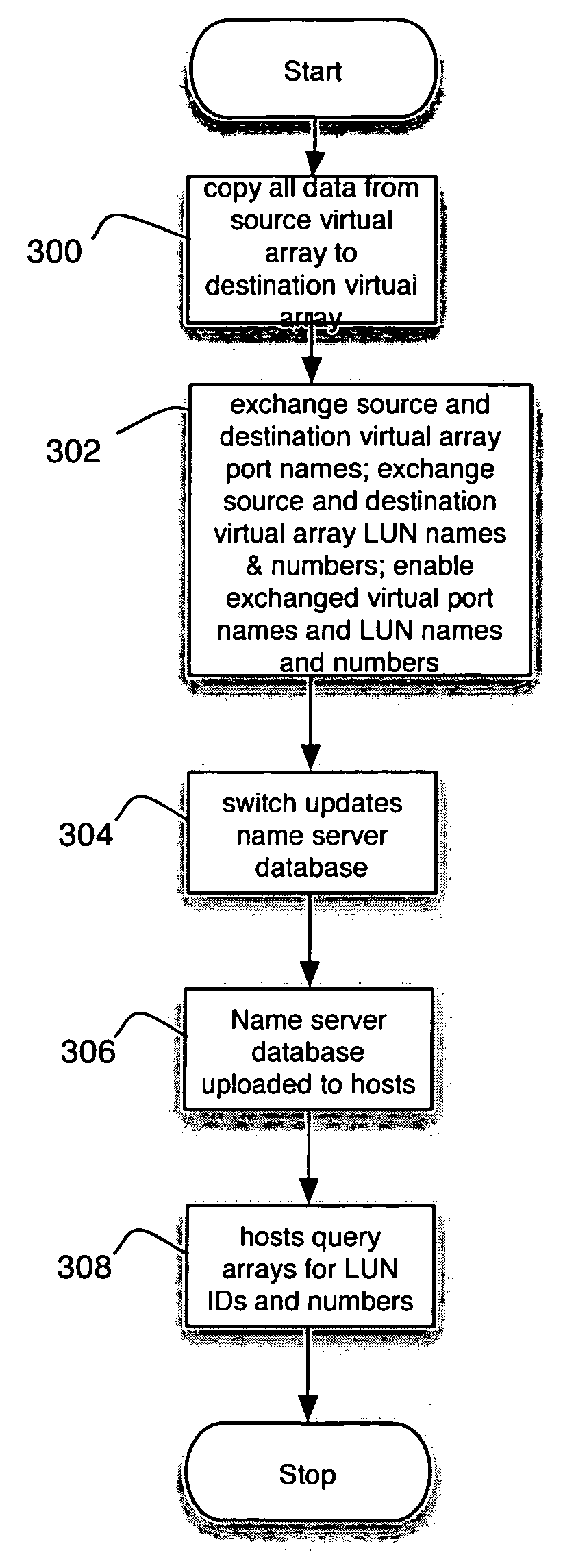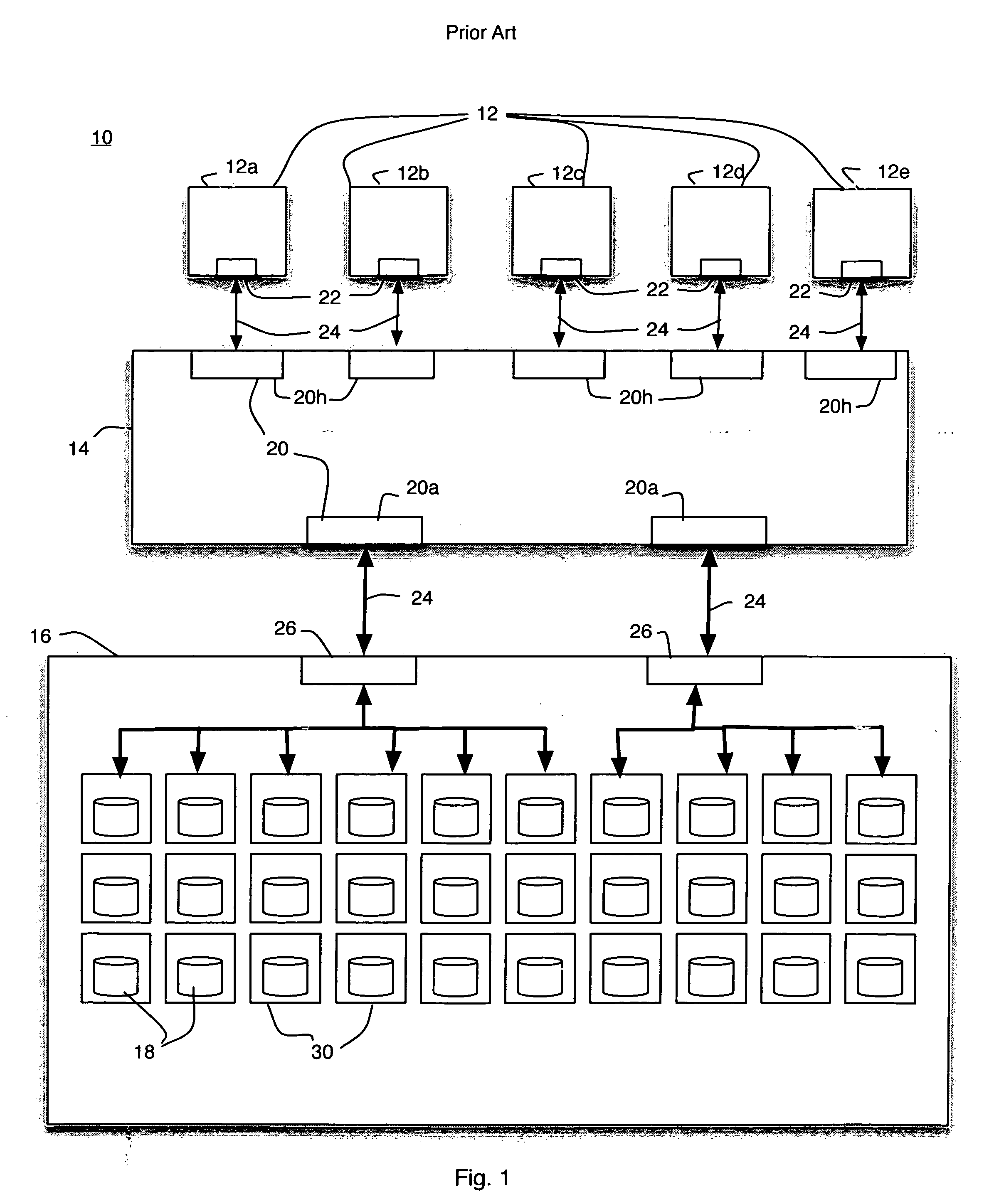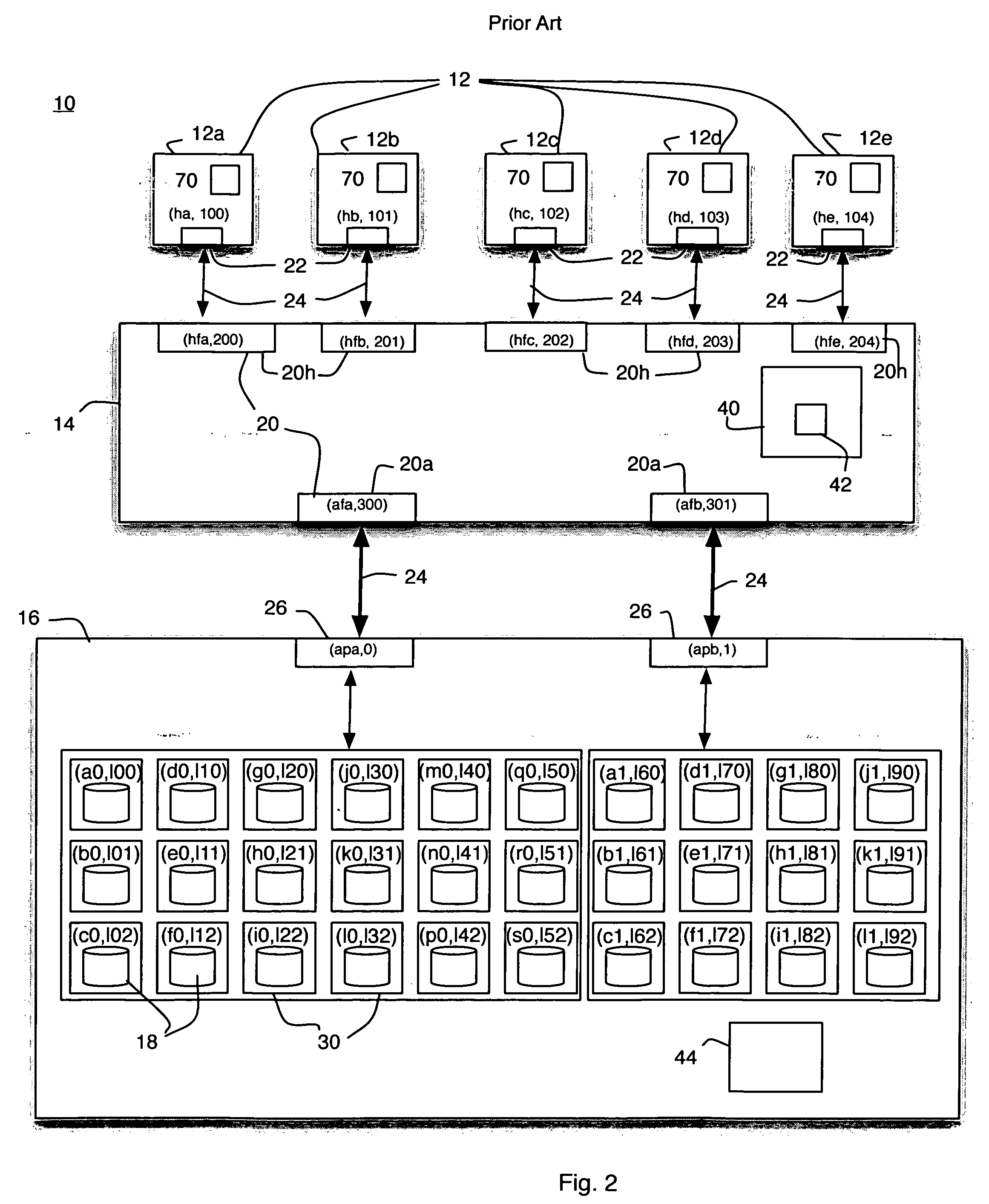Virtual array failover
a virtual array and failover technology, applied in the field of storage systems, can solve the problems of increasing complexity of storage systems used for storage of data, inability of other hosts to access storage groups, and high cost of current methods for partitioning storage arrays into virtual arrays
- Summary
- Abstract
- Description
- Claims
- Application Information
AI Technical Summary
Problems solved by technology
Method used
Image
Examples
first embodiment
[0083] The general process by which a migration occurs from the source virtual array 210f to the destination virtual array 210i in a manner transparent to the hosts 12 in accordance with the first embodiment is shown in FIG. 17. First, the data is copied from the source array 210f to the destination array 210i (step 300). Then, the virtual array port names for the source virtual array 210f are exchanged with the virtual port names for the destination virtual array 210i, and, the source virtual array 210f LUN names and numbers are exchanged with the destination virtual array 210i LUN names and numbers. The exchanged virtual port names and LUN names and numbers are then enabled (step 302). Once the virtual port name and LUN name and number exchanges are complete, the switch 14a notes the configuration change and updates its name server database 40a in response (step 304). The hosts upload the updated name server database 40a (step 306). The hosts then query the presented virtual array...
second embodiment
[0103] In accordance with the second embodiment, it may be advantageous to simply copy the source virtual array data to the destination virtual array, and then replace the destination virtual array port names and LUN names and numbers with the source virtual array LUN names and numbers. In this case, after the link bounce, the destination virtual array appears as the source virtual array, and the source virtual array either disappears or is reinitialized as a new virtual array. One example of such an implementation is shown in FIGS. 32-35. In FIG. 32, an example of the general operation of the migration process is shown. FIG. 32 differs from FIG. 17 in that step 302 has been replaced with step 339. Rather than exchanging virtual port names and LUN names and numbers, destination virtual port names and LUN names and numbers are replaced with source virtual port names and LUN names and numbers. In FIG. 33, one possible example of alternate operation of the source array controller 44c i...
PUM
 Login to View More
Login to View More Abstract
Description
Claims
Application Information
 Login to View More
Login to View More - R&D
- Intellectual Property
- Life Sciences
- Materials
- Tech Scout
- Unparalleled Data Quality
- Higher Quality Content
- 60% Fewer Hallucinations
Browse by: Latest US Patents, China's latest patents, Technical Efficacy Thesaurus, Application Domain, Technology Topic, Popular Technical Reports.
© 2025 PatSnap. All rights reserved.Legal|Privacy policy|Modern Slavery Act Transparency Statement|Sitemap|About US| Contact US: help@patsnap.com



